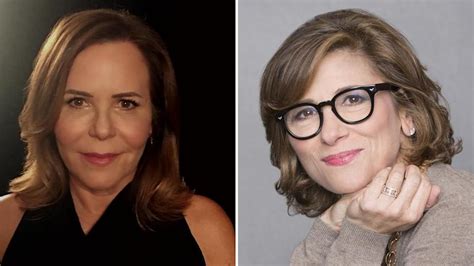A Quote by Jeffrey Eugenides
Being a writer is a solitary life. So the little part of me that's an actor still enjoys the theatrical part of reading and doing the voices and telling the story.
Related Quotes
I feel like, if I'm being honest with myself, my biggest skill set is as a writer 'cause I can do that quickly and I'm really grounded in story structure. Part of my success as an actor, is that I know story well. Part of my success as a director, is how well I know story. Same thing, as a producer. It all begins and ends with me as a story creator. But, I love doing it all.
We had this neighbor who was an actor, and he was going to an audition one day, driving by our house, and he asked if I wanted to tag along. He was reading for the part of the father, and they were reading for the part of the son the same day, and he told me to sneak in there and make it look like I knew what I was doing.
In some ways, I don’t feel as if I had a choice. Looking back at my childhood, even before I could read and write, I was making up stories. I love reading and I love telling stories, and the times in my life when I’ve tried to ignore that part of me, I’ve gone a little crazy. Characters start tugging on my sleeves, words start haunting me, and I feel generally unsatisfied. Really, being a writer sounds more like a mental illness than a professional choice.
Writing is an expression of the writer's own peculiar personality, could not help being so. Yet in reading great works one feels that the finished piece transcends the personal. All writers great and small must sometimes have felt that they have become part of what they wrote even more than it still remains a part of them.
I guess the biggest lesson would be to have faith in that little part of yourself that knows what it's doing, knows what it wants, knows what you should be doing, even when all the clamour around you is telling you something else. That's the part that you want to keep alive and that's the part that people want to see when they see you on the screen.
Writer’s block is my unconscious mind telling me that something I’ve just written is either unbelievable or unimportant to me, and I solve it by going back and reinventing some part of what I’ve already written so that when I write it again, it is believable and interesting to me. Then I can go on. Writer’s block is never solved by forcing oneself to “write through it,” because you haven’t solved the problem that caused your unconscious mind to rebel against the story, so it still won’t work – for you or for the reader.
I was always fascinated by the Torah, the Bible, in terms of story telling: heroes and villains, morality and flaws. There's no better epic. Also, being part Latin and Jewish means I have a sense of the theatrical. There were always a lot of people in my house. My home was always filled with a lot of storytellers.







































